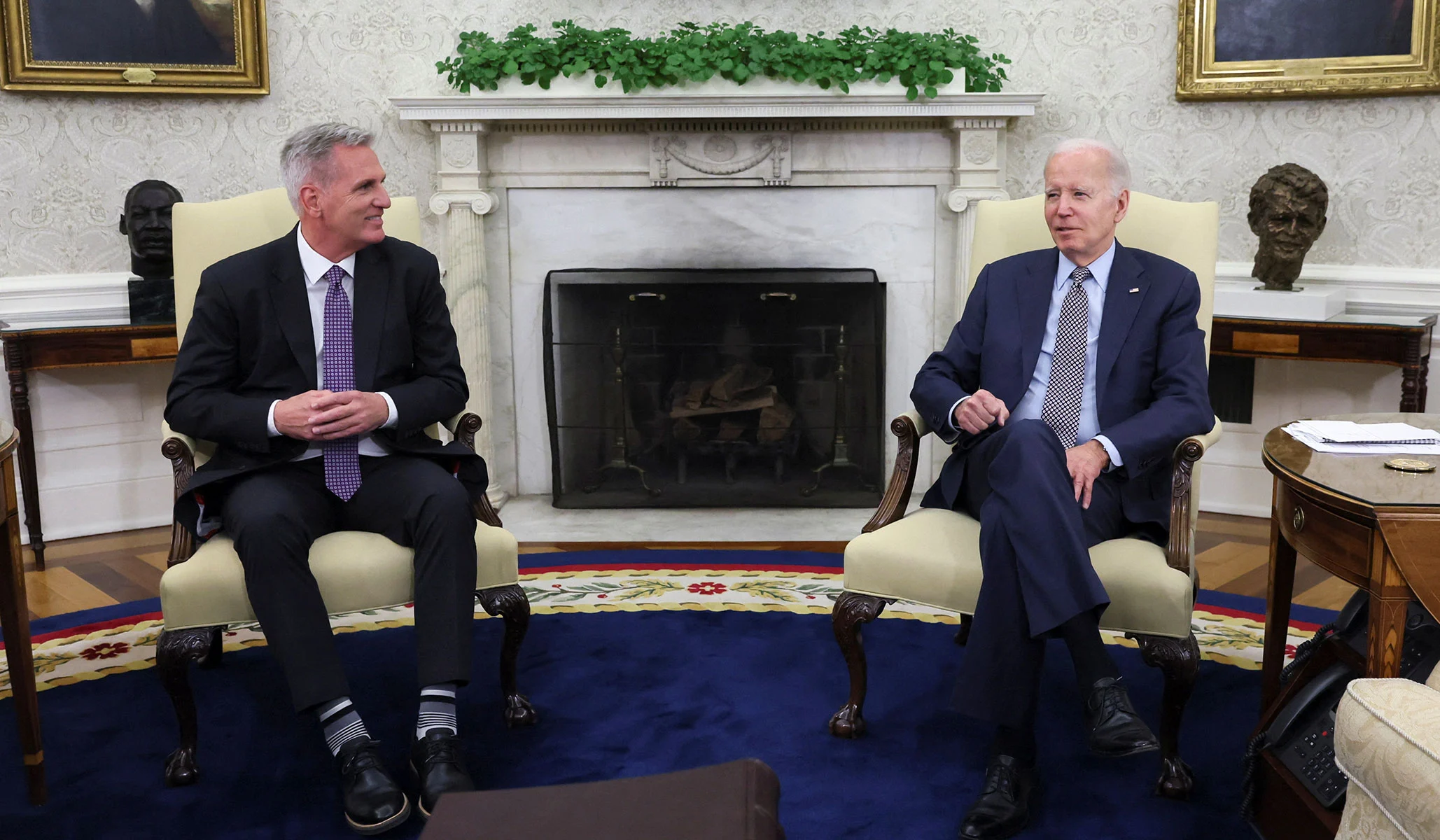Following the recent debt-ceiling negotiations, which resulted in a bipartisan compromise and averted a default, many are wondering if Washington is finally working again. Despite media portrayals of Republicans as “terrorists” and “hostage-takers,” Speaker McCarthy was able to strike a deal with President Biden that passed both chambers of Congress with a comfortable majority. However, the debt-ceiling deal did little to address the long-term trajectory of the debt.
While there was some fire-breathing from backbenchers in both parties, McCarthy and Biden refrained from demonizing each other and instead used hard-nosed language typical of politics in previous decades. McCarthy was able to secure a victory by passing a Republican debt-ceiling bill in April that forced Biden to the negotiating table, where he secured a handful of concessions. Biden was able to say he was responsibly paying America’s debts and got a bipartisan deal to do so.
The process worked in preventing default, but politicians avoided making hard decisions that could have been unpopular. Both parties promised not to touch entitlements, the primary driver of America’s debt problem, and as long as politicians refuse to reform them, the problem will remain.
One area where the process did not work was the Senate’s exclusion from negotiations. The negotiations were between House Republicans and the White House, even though any bill the House passed would have to go through the Senate first. The Senate, under Democratic control, acted as little more than a rubber stamp for Biden.
This goes against the constitutional order, as legislative negotiations should have been primarily between McCarthy and Senate Majority Leader Chuck Schumer. Spending and borrowing are constitutional powers of Congress, and the executive should work with the legislative branch in crafting a deal. However, the Senate was almost entirely frozen out of negotiations.
This led to a group of progressive senators calling on Biden to ignore the legislation being debated and declare the debt limit unconstitutional, a perverse spectacle as they were calling on the executive to unconstitutionally take power away from them. A legislature is supposed to generate ideas, and solutions should emerge from the bottom up, often in ways that are not planned in advance.
While Washington may be working in terms of passing routine legislation on time, we should measure whether Washington is working primarily by whether politicians are following the Constitution’s design for deliberative government with separation of powers. The parties successfully negotiated with each other, but they did so while treating the Senate as a rubber stamp for the president, not a chamber of Congress with its own prerogatives and interests.

